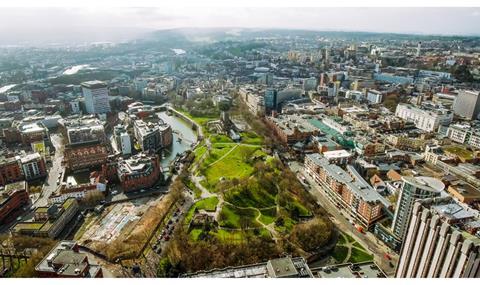
The FTA is calling on its members to urge Bristol City Council to drop proposals for a charging clean air zone (CAZ), which will see diesel cars allowed free access to most of the zone whilst non-compliant HGVs face charges of £100 a day.
The call follows the publication of the council’s CAZ proposals this week.
The first option is for a CAZ which will charge non Euro-6 trucks, buses and coaches £100 a day to enter the city centre, as well as banning all HGVs on the worst polluted routes.
Under this proposal, cars would be free to enter the zone apart from a small section in the city centre where a ban on diesel cars will operate between 7am and 3pm, seven days a week.
A scrappage scheme for diesel cars with a £2,000 limit, is also included in the proposal.
The second option is to ban all diesel cars from driving in the inner city centre from 7am to 3pm, seven days a week and would also include a scrappage scheme for cars.
Read more
- Leeds and Birmingham “significantly postpone” clean air zone start dates
- Hauliers asked to have their say on Greater Manchester’s Clean Air Zone plans
- RHA accuses minister of complacency for failing to tackle multiplicity of clean air zone charges
Chris Yarsley, FTA’s policy manager for the South West of England, said: “Why should the logistics sector be left picking up the bill, when private motorists continue to drive unsanctioned?”
He added: “If Bristol does decide it must implement a charging CAZ, it should include all vehicle types within its remit; the size should also be kept as small as possible to mitigate the very worst economic damage. We encourage all our members to submit a response to the consultation and have their voices heard.”
Yarsley warned that the proposal will hit small businesses, adding: “It is unfair to place this solely on their shoulders, when other factors, including private road users, also contribute to emission levels across the city.”
He called on Bristol to consider other solutions. “Many other city councils, including Nottingham and Southampton, have convinced DEFRA that other solutions can deliver a quicker, more sustainable improvement to air quality without damaging the local economy.
“CAZs bring no long-term air quality benefit; due to natural fleet replacement cycles, all vehicles operating in the city would reach this standard anyway in a few years,” he added.
Yarsley also criticised the lack of details in Bristol’s proposals. “The council has launched this consultation without providing any details on how and when it expects to achieve compliance with air quality limits; this information will only be made public approximately halfway through the consultation period.
“And while the consultation does give the possibility of an exemption for operators based within the zone, or for those with a low turnover, once again, it does not go into any detail. FTA is calling for the council to share a much clearer and more detailed version of its plans.”
Launching the CAZ consultation this week, Bristol mayor Mavin Rees said: "Protecting the most vulnerable from pollution is central to our plans and we have developed the two options which we think strike the right balance, reducing toxic fumes in the shortest possible time but in a way that does not adversely affect the people with lowest incomes or widen the inequality divide in the city."
The deadline for responses to the consultation is on Monday 12 August 2019.
Image: Shutterstock













